
Code: 01434813
Control of Fuel Cell Power Systems
by Jay T. Pukrushpan, Anna G. Stefanopoulou, Huei Peng
The problem of greenhouse gas (particularly carbon dioxide) release during power generation in fixed and mobile systems is widely acknowledged. Fuel cells are electrochemical devices offering clean and efficient energy production ... more
- Language:
 English
English - Binding: Paperback
- Number of pages: 161
Publisher: Springer London Ltd, 2010
- More about this

197.42 €

Low in stock at our supplier
Shipping in 10 - 14 days
Potřebujete více kusů?Máte-li zájem o více kusů, prověřte, prosím, nejprve dostupnost titulu na naši zákaznické podpoře.
Add to wishlist
You might also like
-

Level 4: Disney Aristocats
10.70 € -

Audi A4, Audi A4 Avant
30.20 € -12 % -

Personality Coherence and Incoherence
101.84 € -
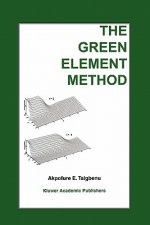
Green Element Method
186.61 € -

Truly, We Both Loved Beauty Dearly!
8.98 € -21 % -

Les innovations thérapeutiques en onco-urologie
112.85 € -

Sovereign Wealth Funds
206.41 € -

Mexico and the North American Free Trade Agreement
218.03 € -

Die Erziehungsfrage als soziale Frage
15.75 € -4 % -

Virginia Papers on the Presidency
58.79 € -

Pharmacological Sciences: Perspectives for Research and Therapy in the Late 1990s
121.34 € -

Data Wise
39.19 € -

Six Lectures on Light
52.53 € -

Relazioni degli ambasciatori Veneti al senato
73.34 €
Give this book as a present today
- Order book and choose Gift Order.
- We will send you book gift voucher at once. You can give it out to anyone.
- Book will be send to donee, nothing more to care about.
More about Control of Fuel Cell Power Systems
You get 494 loyalty points
 Book synopsis
Book synopsis
The problem of greenhouse gas (particularly carbon dioxide) release during power generation in fixed and mobile systems is widely acknowledged. Fuel cells are electrochemical devices offering clean and efficient energy production by the direct conversion of gaseous fuel into electricity. As such, they are under active study for commercial stationary power generation, residential applications and in transportation. The control of fuel cell systems under a variety of environmental conditions and over a wide operating range is a crucial factor in making them viable for extensive use in every-day technology. §In Control of Fuel Cell Power Systems the application of fuel cells in automotive powertrains is emphasized because of the significance of the contribution to global CO2 emissions made by ground vehicle propulsion and because of the challenge presented by the accompanying control problems. The authors comprehensive control-oriented approach provides: An overview of the underlying physical principles and the main control objectives and difficulties associated with the implementation of fuel cell systems. System-level dynamic models derived from the physical principles of the processes involved. Formulation, in-depth analysis and detailed control design for two critical control problems, namely, the control of the cathode oxygen supply for a high-pressure direct hydrogen fuel cell system and control of the anode hydrogen supply from a natural gas fuel processor system. Multivariable controllers that attenuate restraints resulting from lack of sensor fidelity or actuator authority. Real-time observers for stack variables that confer redundancy in fault detection processes. Examples of the assistance of control analysis in fuel cell redesign and performance improvement. Downloadable SIMULINK® model of a fuel cell for immediate use supplemented by sample MATLAB® files with which to run it and reproduce some of the book plots. §Primarily intended for researchers and students with a control background looking to expand their knowledge of fuel cell technology, Control of Fuel Cell Power Systems will also appeal to practicing fuel cell engineers through the simplicity of its models and the application of control algorithms in concrete case studies. The thorough coverage of control design will be of benefit to scientists dealing with the electrochemical, materials and fluid-dynamic aspects of fuel cells. §Advances in Industrial Control aims to report and encourage the transfer of technology in control engineering. The rapid development of control technology has an impact on all areas of the control discipline. The series offers an opportunity for researchers to present an extended exposition of new work in all aspects of industrial control.Presenting the latest research in the control of fuel cell technology, this book will contribute to the commercial viability of the technology. The authors background in automotive technology gives the work added authority as a vital element of future planning.The problem of greenhouse gas (particularly carbon dioxide) release during power generation in fixed and mobile systems is widely acknowledged. Fuel cells are electrochemical devices offering clean and efficient energy production by the direct conversion of gaseous fuel into electricity. As such, they are under active study for commercial stationary power generation, residential applications and in transportation. The control of fuel cell systems under a variety of environmental conditions and over a wide operating range is a crucial factor in making them viable for extensive use in every-day technology. §In Control of Fuel Cell Power Systems the application of fuel cells in automotive powertrains is emphasized because of the significance of the contribution to global CO2 emissions made by ground vehicle propulsion and because of the challenge presented by the accompanying control problems. The authors comprehensive control-oriented approach provides: An overview of the underlying physical principles and the main control objectives and difficulties associated with the implementation of fuel cell systems. System-level dynamic models derived from the physical principles of the processes involved. Formulation, in-depth analysis and detailed control design for two critical control problems, namely, the control of the cathode oxygen supply for a high-pressure direct hydrogen fuel cell system and control of the anode hydrogen supply from a natural gas fuel processor system. Multivariable controllers that attenuate restraints resulting from lack of sensor fidelity or actuator authority. Real-time observers for stack variables that confer redundancy in fault detection processes. Examples of the assistance of control analysis in fuel cell redesign and performance improvement. Downloadable SIMULINK® model of a fuel cell for immediate use supplemented by sample MATLAB® files with which to run it and reproduce some of the book plots. §Primarily intended for researchers and students with a control background looking to expand their knowledge of fuel cell technology, Control of Fuel Cell Power Systems will also appeal to practicing fuel cell engineers through the simplicity of its models and the application of control algorithms in concrete case studies. The thorough coverage of control design will be of benefit to scientists dealing with the electrochemical, materials and fluid-dynamic aspects of fuel cells.
 Book details
Book details
Book category Books in English Technology, engineering, agriculture Energy technology & engineering Electrical engineering
197.42 €
- Full title: Control of Fuel Cell Power Systems
- Subtitle: Principles, Modeling, Analysis and Feedback Design
- Author: Jay T. Pukrushpan, Anna G. Stefanopoulou, Huei Peng
- Language:
 English
English - Binding: Paperback
- Number of pages: 161
- EAN: 9781849969284
- ISBN: 1849969280
- ID: 01434813
- Publisher: Springer London Ltd
- Weight: 284 g
- Dimensions: 235 × 155 × 11 mm
- Date of publishing: 21. October 2010
Trending among others
-

Electrical Engineering Textbook
66.27 € -

Computer Systems: A Programmer's Perspective, Global Edition
99.92 € -

Magnetic Current
8.28 € -

Linden's Handbook of Batteries, Fifth Edition
174.58 € -4 % -

Electric Power
197.42 € -

Computational Electrodynamics: The Finite-Difference Time-Domain Method, Third Edition
169.73 € -

Digital Image Processing, Global Edition
89.31 € -

Requirements for Electrical Installations, IET Wiring Regulations, Eighteenth Edition, BS 7671:2018+A2:2022
142.96 € -5 % -

Fundamentals of Pneumatics and Hydraulics
143.06 € -

Schaum's Outline of Electric Circuits, Seventh Edition
16.96 € -25 % -

Electric Motors and Drives
60.71 € -4 % -
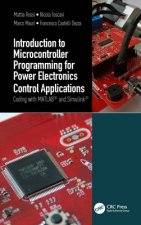
Introduction to Microcontroller Programming for Power Electronics Control Applications
70.21 € -

Zynq Book
41.92 € -

Hydrogen Revolution
20 € -4 % -

Electrical Machines
104.16 € -

Tabellenbuch Elektrotechnik
29.90 € -8 % -

Switch-Mode Power Supplies, Second Edition
183.17 € -

Fitzgerald & Kingsley's Electric Machinery
316.14 € -

Further Electrical and Electronic Principles
69 € -

ASIC Design in the Silicon Sandbox: A Complete Guide to Building Mixed-Signal Integrated Circuits
162.16 € -

Electrical Power Transmission and Distribution
133.46 € -6 % -

Fundamentals of Logic Design, Enhanced Edition
96.78 € -

Electrical Engineering 101
33.43 € -15 % -

Switching Power Supply Design and Optimization, Second Edition
174.89 € -

Feedback Control of Dynamic Systems, Global Edition
109.62 € -

Build Your Own Electric Vehicle, Third Edition
28.48 € -15 % -

Common Lisp: A Gentle Introduction to Symbolic Computation
28.38 € -20 % -

Nikola Tesla
26.16 € -15 % -
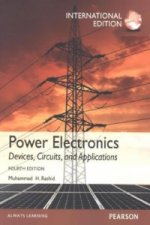
Power Electronics: Devices, Circuits, and Applications
108.20 € -

Computer Networks: Pearson New International Edition
76.27 € -4 % -

Troubleshooting and Repairing Major Appliances
53.64 € -17 % -

Switching Power Supplies A - Z
65.36 € -14 % -

Radar Handbook, Third Edition
233.49 € -2 % -

Introduction to Electrical Installation Work
63.74 € -5 % -

Photovoltaic System Design
156.09 € -1 % -
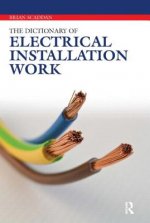
Dictionary of Electrical Installation Work
63.74 € -5 % -

Principles and Applications of Lithium Secondary Batteries
137 € -20 % -

Advanced Electrical Installation Work
68.09 € -

Nikola Tesla
33.74 € -18 % -

Digital System Design with FPGA: Implementation Using Verilog and VHDL
103.45 € -

Anova Sous Vide Cookbook
27.57 € -
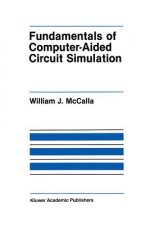
Fundamentals of Computer-Aided Circuit Simulation
186.61 € -

ULTIMATE Tesla Coil Design and Construction Guide
44.04 € -5 % -

Control System Design
28.08 € -21 % -

Electrical Engineering: Know It All
62.94 € -15 % -

Electrician's Trade Demystified
28.68 € -15 % -

Manual of Repairing & Reconditioning Starter Motors and Alternators
18.18 € -

Methodische Lösungswege zum Rechenbuch Elektrotechnik
21.31 € -14 % -

Modern Battery Engineering: A Comprehensive Introduction
65.87 €
Collection points Bratislava a 2642 dalších
Copyright ©2008-24 najlacnejsie-knihy.sk All rights reservedPrivacyCookies


 15549 collection points
15549 collection points Delivery 2.99 €
Delivery 2.99 € 02/210 210 99 (8-15.30h)
02/210 210 99 (8-15.30h)